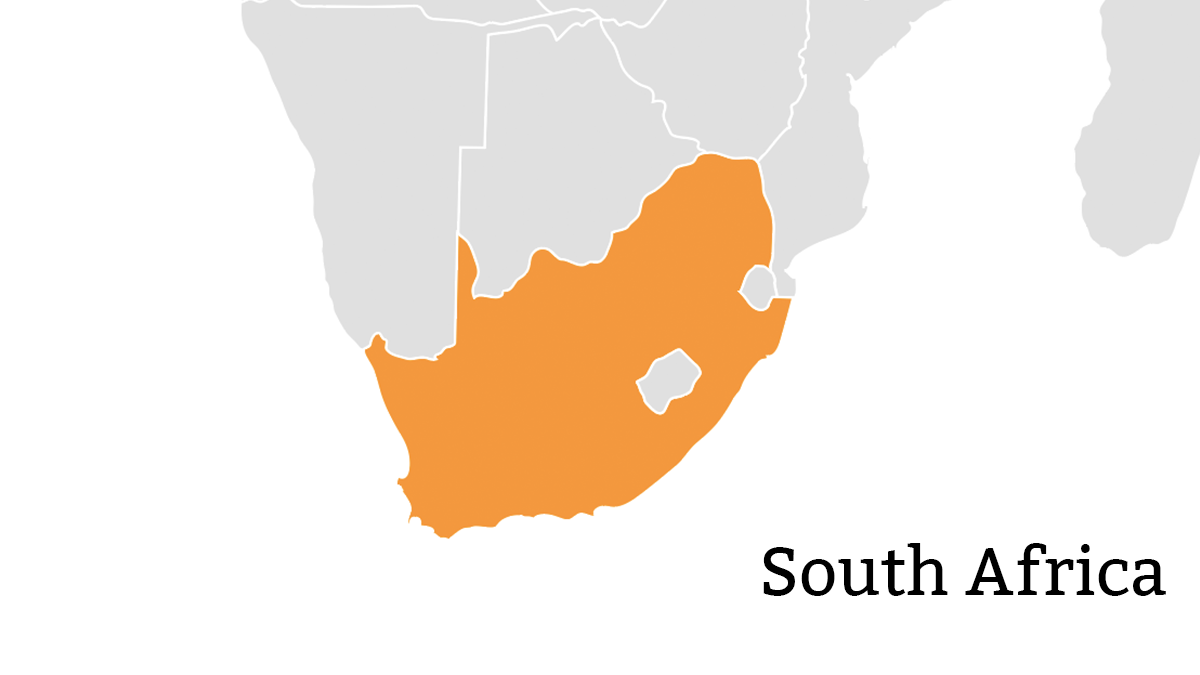
South Africa has one of the most competitive mobile broadband markets in Southern Africa, with three major mobile broadband providers in the country. Behind only Nigeria and Egypt, South Africa represents the third-largest online population from the continent. It is one of only a few countries in Africa with over half of its population connected to the internet. However, this maturity has not enabled universal affordability.
South Africa has some of the most stubborn mobile internet prices in the Global South. Among countries still without affordable data, South Africa had some of the lowest prices five years ago. Consistently, the price of 1GB of mobile internet in South Africa has stayed just above the international ‘1 for 2’ standard – that is, 1GB of data for no more than 2% of the average monthly income. This comes in comparison to other countries in Africa and elsewhere that have seen the costs of mobile internet fall to fractions of what they were in five years ago. The unaffordability of data is exacerbated in the South African context by severe income inequality. For the poorest 20%, 1GB of mobile internet represents over 18% of their average monthly income – well beyond the realm of affordability.
High costs and other consumer-unfriendly policies in the South African market have been the target of public criticism. Inspired by the 2015 Rhodes Must Fall movement, many consumers and political figures gathered around a #DataMustFall campaign. This campaign called for, among other things, for data costs to be reduced for consumers and for a curtailment of aggressive data expiry practices and out-of-bundling pricing for prepaid customers.
The South African telecommunications market is regulated by the Independent Communications Authority of South Africa (ICASA). Within the regulator’s mandate is to create regulations to curb non-competitive actions and safeguard consumer interests in the market through its licensing powers. Such practices are recognised with the A4AI good practices and reflected in the Affordability Drivers Index.
ICASA offers consumers a number of avenues for engagement in the regulatory process. It organises public hearings on draft regulations and posts discussion documents for public comment. The ICASA website also features a Consumer Portal which provides a convenient way for consumers to register complaints with the regulator. This portal provides a further, independent avenue of appeal for consumers facing disagreement with a licensed operator and allows the institutional authority of ICASA to help resolve consumers’ cases. Through these means, the regulator is able to respond to customer demand and also create an evidence base for regulatory action to remedy problems within the market.
ICASA has a record of regulatory actions in recent years enabled by this participatory process. In 2018, ICASA passed reductions in the interconnect rates that operators charge each other to complete a voice call. This comes after a multi-year and multi-stakeholder review process.
More recently, ICASA has taken regulatory action spurred by the #DataMustFall campaign. The February 2019 End-User and Subscriber Service Charter (EUSSC) amendment regulations imposed a number of pro-consumer requirements on operators: sunsetting data expiry practices, requiring opt-in by consumers for out-of-bundle data charges, and mandating data consumption pacing notifications to users at key points in a package’s allowance. This victory comes after extensive public campaigning for such policies and despite a legal challenge from operators who postponed but could not prevent the regulations from taking place.
The regulator’s approach to public campaigns and the inclusion of all stakeholders in the regulatory process enables systemic issues to be addressed in a cooperative and evidence-based manner. Through the #DataMustFall campaign, civil society groups and organisers were able to apply public pressure on the operators in South Africa with the successful adoption of new regulatory measures in 2019. This action and the consequent evidence become the basis for regulatory action by ICASA.
In part because of ICASA’s multi-stakeholder, consultative policies, South Africa performs the highest on the regulatory environment cluster in the Affordability Drivers Index. Higher performance on the ADI is correlated with greater affordability for mobile broadband among low- and middle-income countries, and while there is still room for growth in South Africa’s broadband policy, this regulatory process offers a valuable foundation for further policymaking that supports consumers’ interests and can reduce internet prices.
Suggested Citation: Alliance for Affordable Internet (2020). “South Africa: Engaging consumers in market regulations.” Good Practices Database. Washington DC: Web Foundation.
